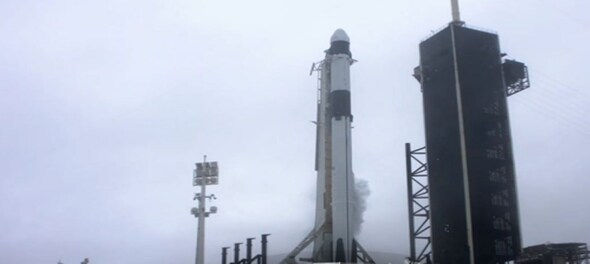
The resupply mission for the International Space Station by the National Aeronautics and Space Administration (NASA) and SpaceX has been postponed to November 26. The CRS-26 mission, slated for November 22, was delayed due to poor weather conditions. The mission is the 26th commercial resupply mission operated by Elon Musk’s space corporation SpaceX.
The agency is now targeting a launch at 2:20 pm ET on November 26. The spacecraft will lift off from Launch Complex 39A, at the Kennedy Space Center, Florida. The mission was already pushed from November 18 to November 22 due to a coolant leak in the Dragon spacecraft.
ALSO READ:Update: We're standing down from today's #CRS26 launch attempt due to weather conditions.
Our next attempt is scheduled for Saturday, Nov. 26 at 2:20pm ET (1920 UTC).— NASA (@NASA) November 22, 2022
SpaceX’s Dragon spacecraft will be taking 7,700 pounds of supplies, equipment and several science investigations. The spacecraft will autonomously dock with the International Space Station’s Harmony module. Included in the payload is the next pair of International Space Station Roll Out Solar Arrays (iROSAs). The arrays are expected to significantly augment the scientific laboratory aboard the power.
Also included are four CubeSats, which are part of NASA's Educational Launch of Nanosatellites, or ELaNa program. These include Measurement of Actuator Response in Orbit (MARIO) – which will augment an existing CubeSat with telescopes, Scintillation Prediction Observation Research Task (SPORT) – a Brazil-US joint scientific investigation over the formation of plasma bubbles, Thomas Jefferson High School for Science and Technology's Research and Education Vehicle for Evaluating Radio Broadcasts (TJREVERB) – which was developed by high school students to test the strength of iridium radio signals, and petiSAT – which will study the effect of plasma bubbles on communication signals, GPS, and radar signals.
After depositing the payload, the reusable Falcon 9 payload will make a controlled descent back to the planet with the Dragon spacecraft.
Check out our in-depth Market Coverage, Business News & get real-time Stock Market Updates on CNBC-TV18. Also, Watch our channels CNBC-TV18, CNBC Awaaz and CNBC Bajar Live on-the-go!


Tamil Nadu Lok Sabha elections 2024: List of Congress candidates
Apr 18, 2024 4:33 PM
Will the payment under PM-KISAN be increased? Here's what Finance Minister said
Apr 18, 2024 3:58 PM
First phase of voting for Lok Sabha elections begins tomorrow, 1,625 candidates in fray
Apr 18, 2024 3:50 PM
Tamil Nadu Lok Sabha elections 2024: Full list of BJP candidates
Apr 18, 2024 2:37 PM

